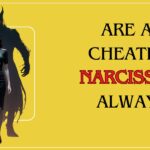
10 Signs of Narcissistic Devaluation
Are you tired of feeling like you’re never good enough? Do you feel trapped in a cycle of constant criticism and doubt? You’re not alone. Experiencing narcissistic devaluation can be a painful and exhausting experience. But here’s the truth: your suffering is not your fault. It’s time to break free from the toxic grip of narcissistic abuse and reclaim your sense of self-worth. Let’s get into the reality of what are narcissistic devaluations and how to identify those to protect yourself. What is a Narcissist Devaluation? Narcissistic devaluation happens when a narcissist begins to diminish or undermine someone they were once idealizing. At first, they may have made you feel special, loved, or deeply admired, often called the “idealization phase.” However, as time passes, they might start to criticize, belittle, or withdraw affection. This shift isn’t about you; it often reflects their deep insecurities and need to feel superior by controlling how others see themselves. The impact of devaluation is particularly harmful because it happens after the idealization phase, which can create confusion. Victims often question, “What did I do wrong?” or feel the need to regain the narcissist’s approval. This emotional rollercoaster can lead one (victim) to self-doubt, anxiety, and even a loss of personal identity. Types of Narcissistic Devaluation Signs Recognizing Narcissistic devaluation is challenging because it’s subtle at first. Because, narcissists are skilled at making their actions seem reasonable. You might not see it as “devaluation” but as moments of tension or normal relationship struggles. But, Over time, the abusive patterns emerge, and you should keep an eye on those devaluations to safeguard yourself from the abusive cycle. These aren’t random but deliberate ways to keep control. So, Keep watching for the below signs or narcissist redflags. The following are the Devaluation red flags/signs of a narcissist, 1. Emotional and Verbal Abuse One of the clear indications of devaluation is when the narcissist starts to pick at you, insult you, and put you down. They may constantly make fun of you or belittle your accomplishments. This emotional and verbal abuse is aimed at demoralizing you, making you feel unworthy, and ensuring that you never speak up when they violate your boundaries. Recognizing this behaviour as a sign of devaluation is crucial for your self-esteem and mental health. 2. Gaslighting Gaslighting involves distorting your reality to make you question your perceptions. A narcissist might deny things they said or did, making you feel like you’re imagining things. They do things that can hurt you and might even accuse you of forgetting things they deliberately never told you, saying, “I told you about this; you just weren’t paying attention.” Over time, you may start doubting your memory or sanity, feeling as though you can’t trust your own mind. This tactic serves to confuse you, weaken your confidence, and make you more dependent on their version of events, where they always come out blameless. 3. Blaming You for Their Problems Another devaluation tactic is making you responsible for their failures or bad moods. If they’re unhappy or something goes wrong, they’ll twist the situation to make it seem like your fault. For example, they might say, “If you hadn’t distracted me, I wouldn’t have made that mistake.” This not only deflects accountability from them but also leaves you feeling guilty for things you didn’t do, further eroding your sense of self. In a healthy relationship, both partners take responsibility for their actions. However, narcissists rarely own up to their behaviour and blame or gaslight you for that. 4. Silent Treatment One common tactic narcissists use is the silent treatment. As the devaluation phase progresses, narcissists may withdraw emotionally and physically. They may suddenly stop speaking to you, ignoring your presence as if you don’t exist. They may become distant and show a lack of interest in spending time with you or engaging in activities together. This can leave you feeling invisible, confused, and desperate to “fix” whatever you think went wrong. The silence is not about resolving conflict—it’s about control. By withholding communication, they shift the power dynamic entirely in their favor. 5. Intense Criticism and Nitpicking During the devaluation stage, narcissists often engage in excessive criticism and nitpicking. They may find fault with everything you do or say, no matter how trivial. This constant criticism is meant to diminish your confidence and self-esteem. It’s important to remember that their criticism is not a reflection of your worth or abilities. 6. Manipulative Behavior Narcissists are skilled manipulators. They may use various tactics to control and manipulate you during the devaluation phase. These manipulative behaviours can include gaslighting, guilt-tripping, love-bombing followed by withdrawal, and playing mind games. Recognizing these manipulative tactics can empower you to break free from their toxic influence. 7. Sabotaging Your Happiness Narcissists often find ways to ruin your good moments. If you’re excited about an achievement or enjoying time with friends, they might create drama, criticize you, or bring up unrelated issues to shift attention back to themselves. According to them, you shouldn’t have your own life. Every moments in your life should be associated and controlled through narcissist. Hence, This can make you feel afraid of getting joy and stuck up forever with the narcissist as they are discouraging you from seeking joy outside of the relationship. By doing this, they ensure that your focus remains on them and their needs by drinking down the throat. 8. Triangulation and Jealousy Another subtle way narcissists devalue you is through triangulation. Narcissists become increasingly jealous of your skills, strengths, and experiences. So, they may start comparing you to others, creating a competitive rivalry within the relationship. They may bring a third person into conversations, praising them excessively or comparing you unfavorably. For example, they might say, “Why can’t you be more like [person]?” This creates feelings of jealousy and inadequacy while distracting you from their own shortcomings. Read more about Narcissistic Triangulation 9. Discarding and Hoovering The discard phase occurs when the narcissist decides to…







